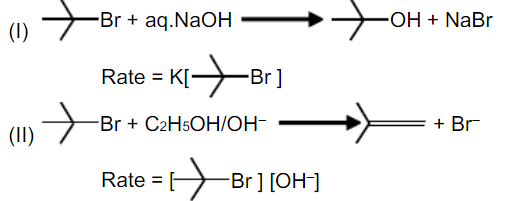Statement A : Action and reaction act on two different bodies
Statement B : Action, reaction never cancel each other
A & B are correct
A & B are wrong
A is correct and B is wrong
A is wrong and B is correct
The correct Answer is:A
To analyze the statements provided, we will break down the concepts of action and reaction as per Newton's Third Law of Motion.
1. Understanding Statement A:
- Statement A claims that "Action and reaction act on two different bodies."
- According to Newton's Third Law of Motion, for every action, there is an equal and opposite reaction. This means that when one body exerts a force on another body, the second body exerts an equal and opposite force on the first body.
- Since these forces act on different bodies, Statement A is correct.
2. Understanding Statement B:
- Statement B states that "Action and reaction never cancel each other."
- Since action and reaction forces act on different bodies, they cannot cancel each other out. Cancellation of forces can only occur when they act on the same body. Therefore, since action and reaction forces act on different bodies, they do not cancel each other.
- Hence, Statement B is also correct.
3. Conclusion:
- Both statements A and B are correct based on the principles of Newton's Third Law of Motion.
Final Answer:
Both Statement A and Statement B are correct.
---
- Statement A claims that "Action and reaction act on two different bodies."
- According to Newton's Third Law of Motion, for every action, there is an equal and opposite reaction. This means that when one body exerts a force on another body, the second body exerts an equal and opposite force on the first body.
- Since these forces act on different bodies, Statement A is correct.
- Statement B states that "Action and reaction never cancel each other."
- Since action and reaction forces act on different bodies, they cannot cancel each other out. Cancellation of forces can only occur when they act on the same body. Therefore, since action and reaction forces act on different bodies, they do not cancel each other.
- Hence, Statement B is also correct.
- Both statements A and B are correct based on the principles of Newton's Third Law of Motion.
Both Statement A and Statement B are correct.
Topper's Solved these Questions
- LAWS OF MOTIONBOOK - AAKASH SERIESCHAPTER - LAWS OF MOTIONEXERCISE - EXERCISE - II
136 Videos
- LAWS OF MOTIONBOOK - AAKASH SERIESCHAPTER - LAWS OF MOTIONEXERCISE - PRACTICE EXERCISE
106 Videos
- LAWS OF MOTIONBOOK - AAKASH SERIESCHAPTER - LAWS OF MOTIONEXERCISE - Application
6 Videos
- GEOMETRICAL OPTICSBOOK - AAKASH SERIESCHAPTER - GEOMETRICAL OPTICSEXERCISE - ADDITIONAL PRACTICE EXERCISE (LEVEL-II PRACTICE SHEET (ADVANCED) INTEGER TYPE QUESTIONS)
10 Videos
- LOGIC GATESBOOK - AAKASH SERIESCHAPTER - LOGIC GATESEXERCISE - Exercise (Very Short Answer)
10 Videos
Similar Questions
Knowledge Check
Action and reaction act on the :
Asame body in opposite directionsBdifferent bodies in opposite directionsCdifferent bodies, but in same directionDsame body in same direction.
STATEMENT -1 : Action and reaction acting on a particle cancels each other .
STATEMENT -2 : Action and reaction pair acts on different particles .
STATEMENT -3 : If an object is placed on a table then normal reaction by the table and weight are action reaction pair and they cancel each other .
View SolutionThe action and reaction both act simultaneously.' Is this statement true ?
View SolutionThe action and reaction are equal in magnitude'. Is this statement true ?
View Solution
Correct statement regarding these two reaction I and II
View SolutionComment on the statement 'the sum of action and reaction on a body is zero'.
View SolutionStatement A : Shock absorbers reduce the magnitude of change in momentum.
Statement B : Shock absorbers increase the time of action of impulsive force
View SolutionThe reaction, A + B → P can never be
View Solution
